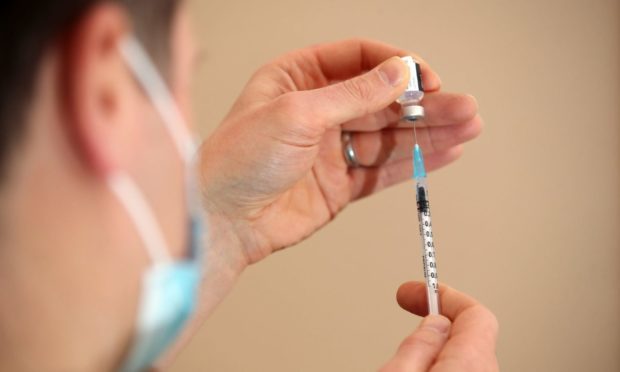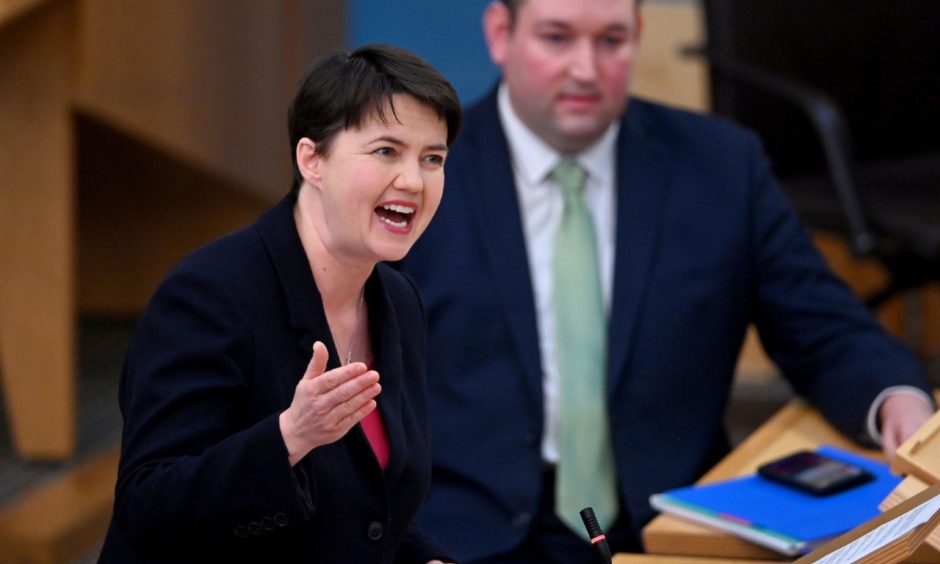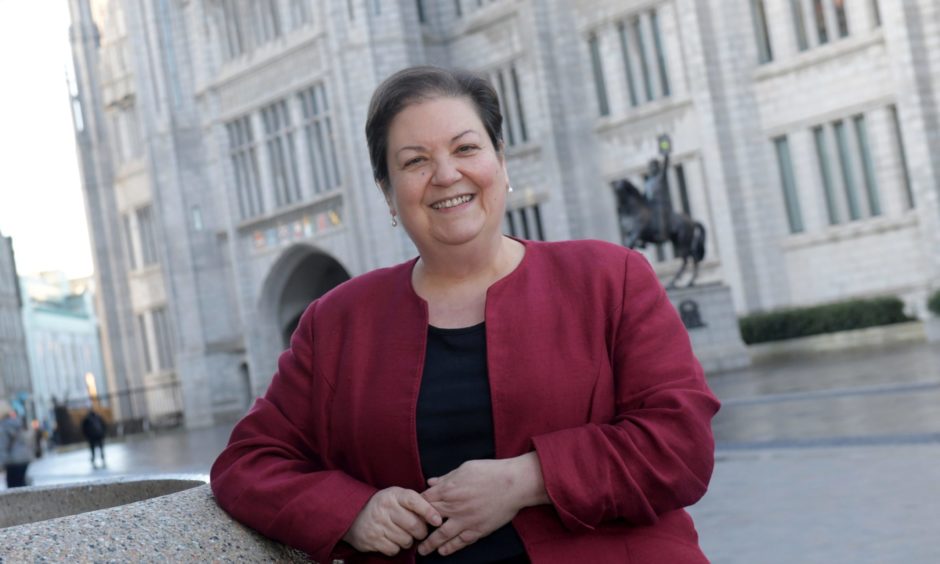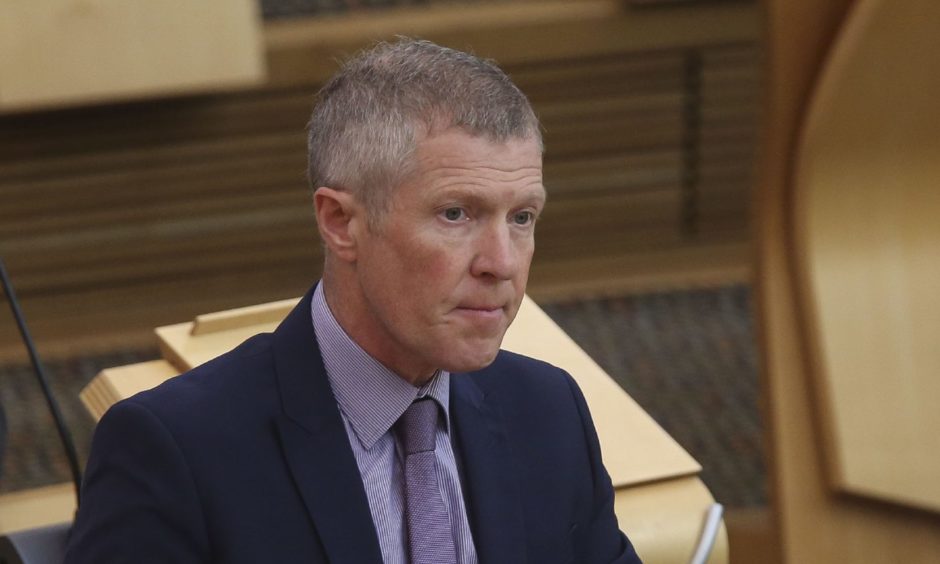First Minister Nicola Sturgeon insists the country’s vaccine roll-out is “working well” despite Scotland having the lowest proportion of population to have been administered a first dose in the UK.
Ms Sturgeon, pressed by Ruth Davidson on the Scottish Government’s use of the military in the vaccine rollout, said the number of people vaccinated on Tuesday was the highest yet, with 38,484 being given an initial inoculation in the past 24 hours.
As many as 650,000 first doses have now been administered in Scotland.
The SNP leader addressed parliament ahead of First Minister’s Questions on Wednesday afternoon.
Ms Sturgeon told MSPs that 98% of older people in care homes had received their first dose, as well as 87% of those over the age of 80.
More than a quarter (28%) between the ages of 70 and 79 have also received their first dose.
‘A seven-day service was promised’
Scottish Conservative Holyrood leader Ruth Davidson asked why Scotland’s vaccine rate was lagging, questioning also the Sunday figures which for weeks in a row had shown sharp decline.
She said: “For consecutive weeks vaccinations have dropped substantially on Sundays. A seven-day service was promised and it will be essential if we are going to meet targets.
“Has the first minister identified what the problem is on Sundays and can she tell the chamber what has been done since last Sunday to improve this coming weekend?”
Ms Sturgeon answered: “The Scottish Government followed an approach which prioritised getting the most vulnerable groups vaccinated first and achieving as high an uptake in these groups as possible.”
She added: “Michael Gove MP was unable to give a figure on how many residents in care homes in England have been vaccinated, as opposed to offered a vaccine.”
Ms Sturgeon acknowledged the figure in Scotland stood at 98% of care home residents.
“We are now accelerating the roll-out for younger age groups.
“The health secretary and vaccination team have been working to make sure the capacity is there and fully utilised every day of the week, including Sunday.
“I will personally meet with health board CEOs to hear from them the steps being taken to make sure overall pace is accelerating and is a consistent performance seven days a week.”
Armed Forces
Ms Davidson also asked about the use of members of the Armed Forces in helping the programme gather pace.
Following the parliamentary meeting, the UK Government announced a further 81 soldiers being brought in.
Ms Davidson added: “It’s fantastic news that the Armed Forces will be on the frontline, helping to speed up the rollout in Scotland.
“That’s exactly the kind of shot in the arm the programme needs and it will go a long way to restoring confidence across the country.
“We always knew the number of vaccinations would rise when mass centres opened and we’re all delighted to see that’s finally happening. A big increase is to be expected just days after we hit a record low.
“Problems haven’t vanished overnight, though, and the First Minister went into denial mode again today, just 24 hours after her health secretary admitted the SNP need to go faster.
“In the same breath, Nicola Sturgeon welcomes scrutiny and rejects it out of hand.
“The facts show we’re still far behind the rest of the UK on vaccinating over 75s and a postcode lottery is creating problems for people across Scotland.
“Nicola Sturgeon avoided answering when all mass centres would hit their 20,000-target figures. Although, we are pleased that more daily vaccine data will soon be published.”
Postcode lottery denied
The first minister denied the rollout had resulted in a “postcode lottery” following questions from interim Scottish Labour leader Jackie Baillie, who claimed to have received lots of emails and letters from people across the country eligible for a vaccine who have yet to receive an appointment.
Ms Sturgeon said: “People are not being penalised because of where they live.
“There will be differences in speed because of geographies, because of how different health boards are organising this to take account of the differences between urban areas and rural areas, the different sizes of communities, but all health boards are making progress.”
The SNP leader also read aloud a phone number for people to ring if they are concerned about when they will receive their vaccine.
Following this, Ms Bailie added: “From the moment I sat down after asking my questions, my phone was buzzing with emails from people across Scotland saying they tried phoning the number the First Minister read out but it was no help, at all.
“As these emails show, it is simply not credible for the First Minister to claim that ‘nothing is going wrong’ with the vaccine programme.
“The first minister should withdraw this claim and make sure that people awaiting their vaccination are actually told what’s going on.”
Long process
Scottish Liberal Democrat leader Willie Rennie also challenged the first minister on the vaccination process, saying it was taking a senior professional in the NHS weeks to be trained to give the jabs.
Ms Sturgeon told him there were already more than 9,000 registered coronavirus vaccinators in Scotland.
She said as Scotland works towards the target of doing 400,000 jabs a week by the end of this month, the authorities had “already identified and have registered the numbers we need to do this programme at the scale we need to do it”.
Ms Sturgeon suggested that if the training process did not take as long, and someone became ill or unwell as a result, then she would face questions asking why the programme had been “rushed”.



